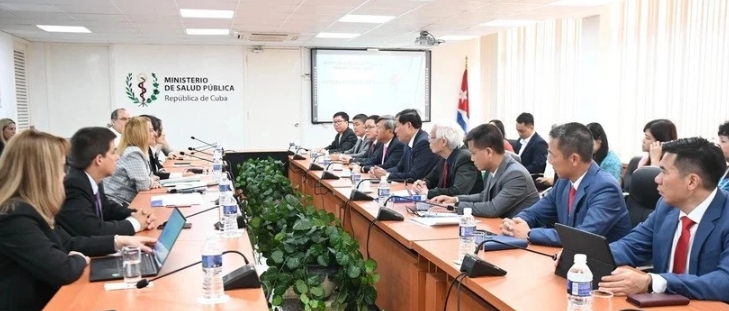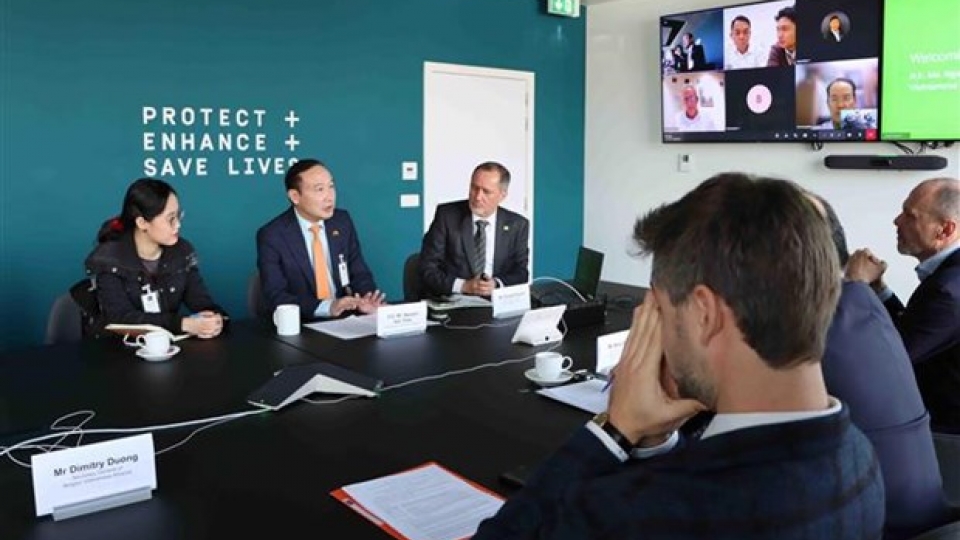Vietnam, Cuba deepen health partnership with focus on biopharmaceuticals
Deputy Minister of Health Do Xuan Tuyen concluded a six-day visit to Cuba on May 22, aimed at strengthening bilateral cooperation in healthcare, particularly in biopharmaceuticals.

During a working session with Cuban Deputy Minister of Health Tania Margarita Cruz Hernández, Tuyen described the bilateral medical partnership as a vivid symbol of international solidarity, one deeply rooted in the historic friendship fostered by President Ho Chi Minh and leader Fidel Castro.
He highlighted decades of productive cooperation, including the exchange of medical experts, medical staff training, technology transfer, joint research, and epidemic prevention. In 2021, the two health ministries signed a Memorandum of Understanding and an action plan to advance scientific and technological progress, delivering tangible benefits to both nations.
For her part, Deputy Minister Tania Margarita underscored Cuba’s strengths in biotechnology, preventive medicine, and vaccine production. She reiterated Cuba’s commitment to deepening cooperation with the Vietnamese counterpart in pursuit of shared public health goals.
The two sides agreed to expand their practical, sustainable and mutually beneficial cooperation. Key priorities include strengthening pharmaceutical collaboration, such as expanding joint ventures and transferring vaccine and biological production technologies to Vietnam; training medical staff, especially in fields where Cuba excels like oncology, cardiology, and immunology; enhancing joint research to respond to emerging infectious diseases, leveraging the strong scientific foundations of both countries; and encouraging hospital-to-hospital partnerships to foster practical connections and improve healthcare outcomes.
Meeting with First Secretary of the Communist Party of Cuba Central Committee and President of Cuba Miguel Díaz-Canel Bermúdez, Tuyen reported on the outcomes of his working session with the Cuban Ministry of Health. Key areas of strategic cooperation identified include the launch of the family doctor model, the elimination of mother-to-child transmission of HIV/AIDS, and the advancement of biotechnology for pharmaceutical production in Vietnam.
He also announced the formation of a joint venture to establish a pharmaceutical research and manufacturing facility in Vietnam, a move Díaz-Canel hailed as a fulfillment of consensus reached during Party General Secretary To Lam’s visit to Cuba in September 2024. The venture, he said, would bolster production of essential medicines for both nations.
Right after the meeting, Díaz-Canel and Tuyen witnessed the signing of a cooperation agreement between BioCubaFarma SA, a key company under Cuba’s BioCubaFarma Group and Vietnamese partners. The agreement paves the way for a joint venture in Vietnam to build a pharmaceutical plant, facilitate technology transfers for biologics and chemical drugs from Cuba, and step up research and development of hi-tech pharmaceuticals. It will also support the import and distribution of Cuban medicines tailored to the Vietnamese market.
At the signing ceremony, Tuyen noted that the joint venture, backed by both governments, holds special significance as the two countries are celebrating the 65th anniversary of diplomatic ties.
While in Cuba, Tuyen and his entourage visited and held working sessions with Cuba’s regulatory authority for pharmaceuticals and medical equipment, the Centre of Molecular Immunology, the Centre for Genetic Engineering and Biotechnology, and the Vietnamese Embassy in Havana.



